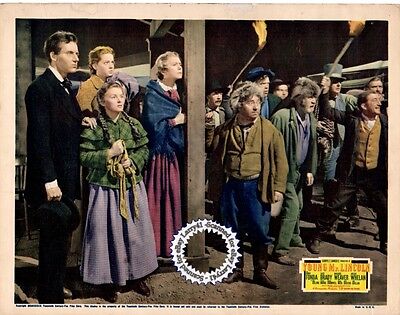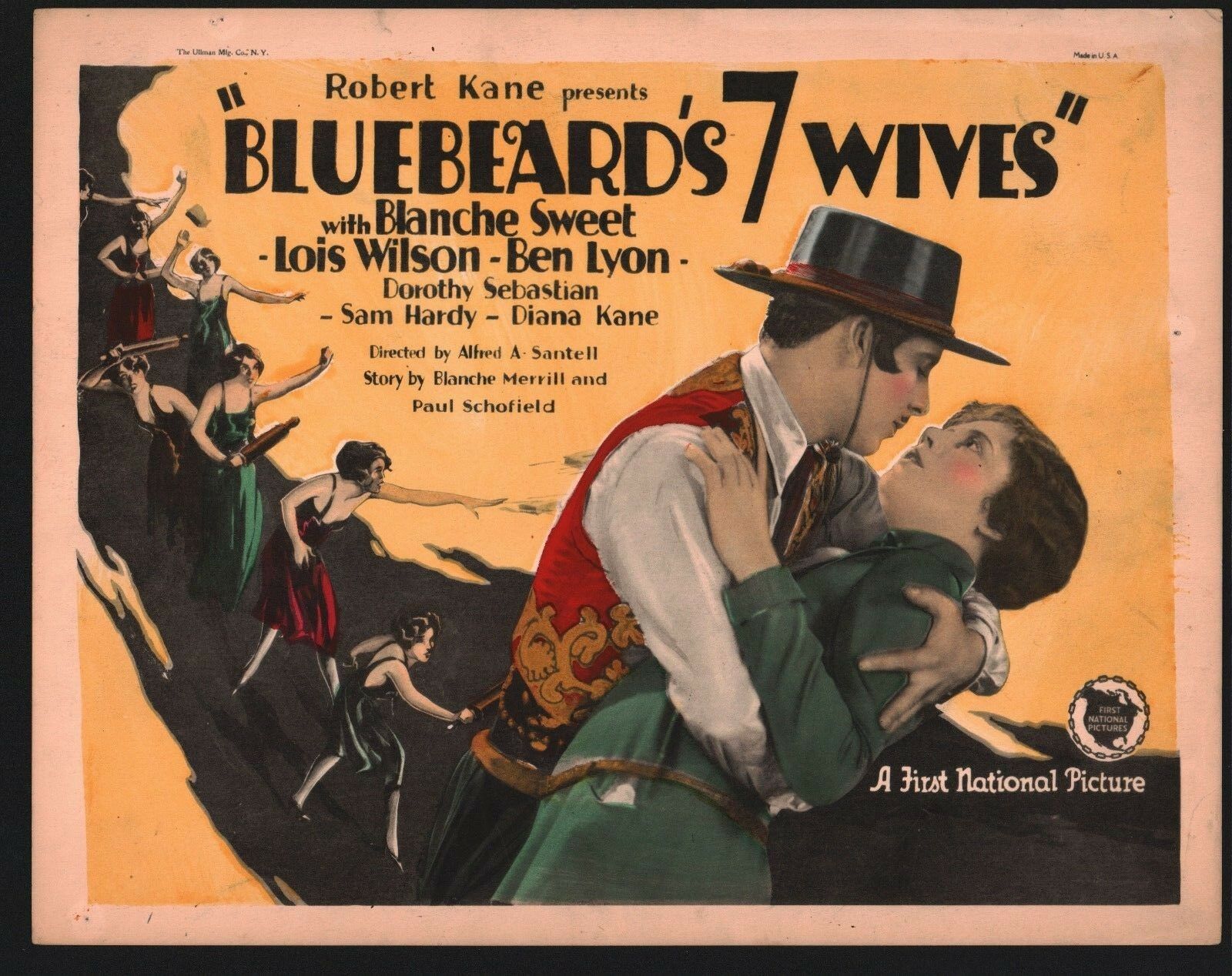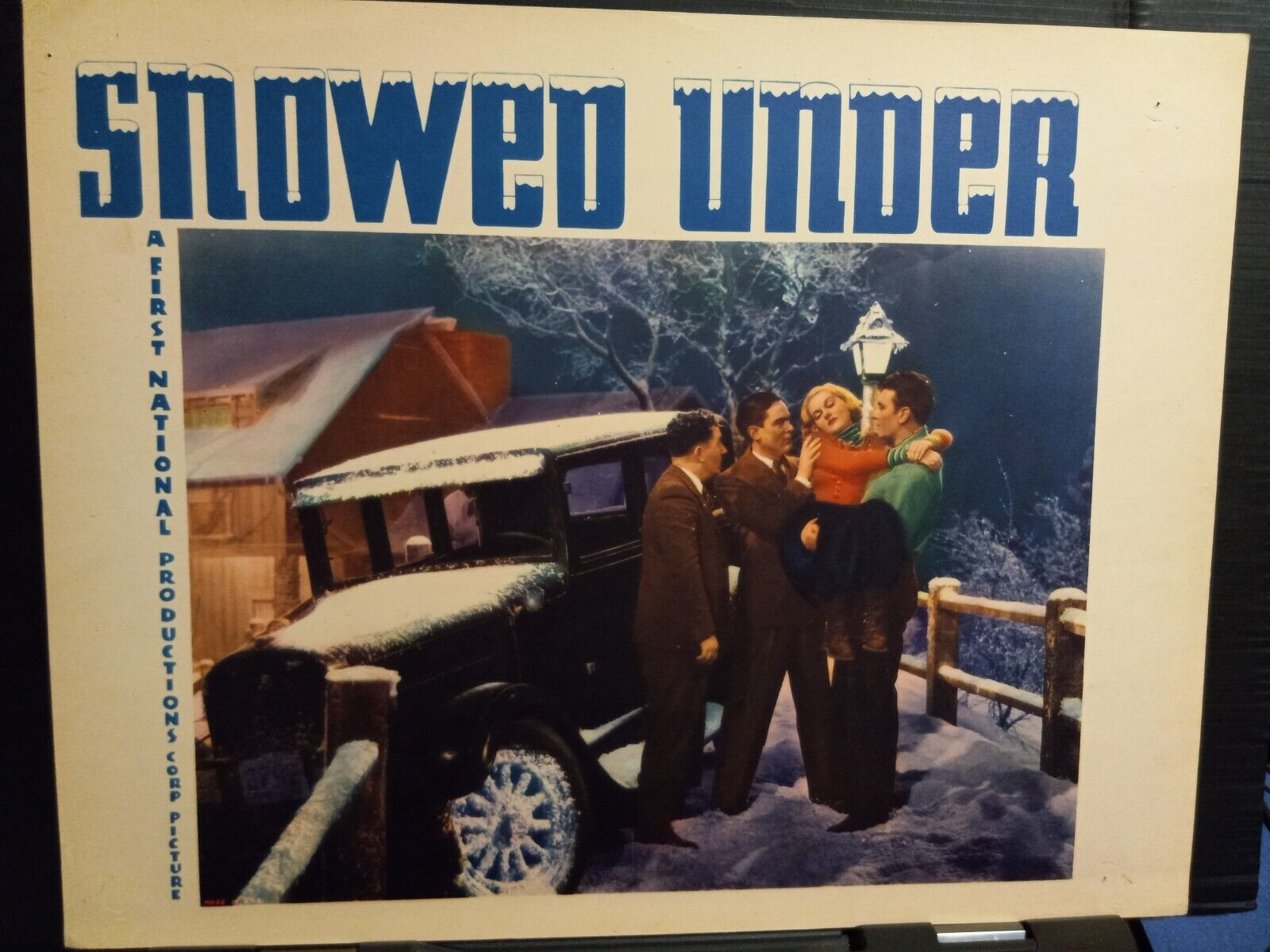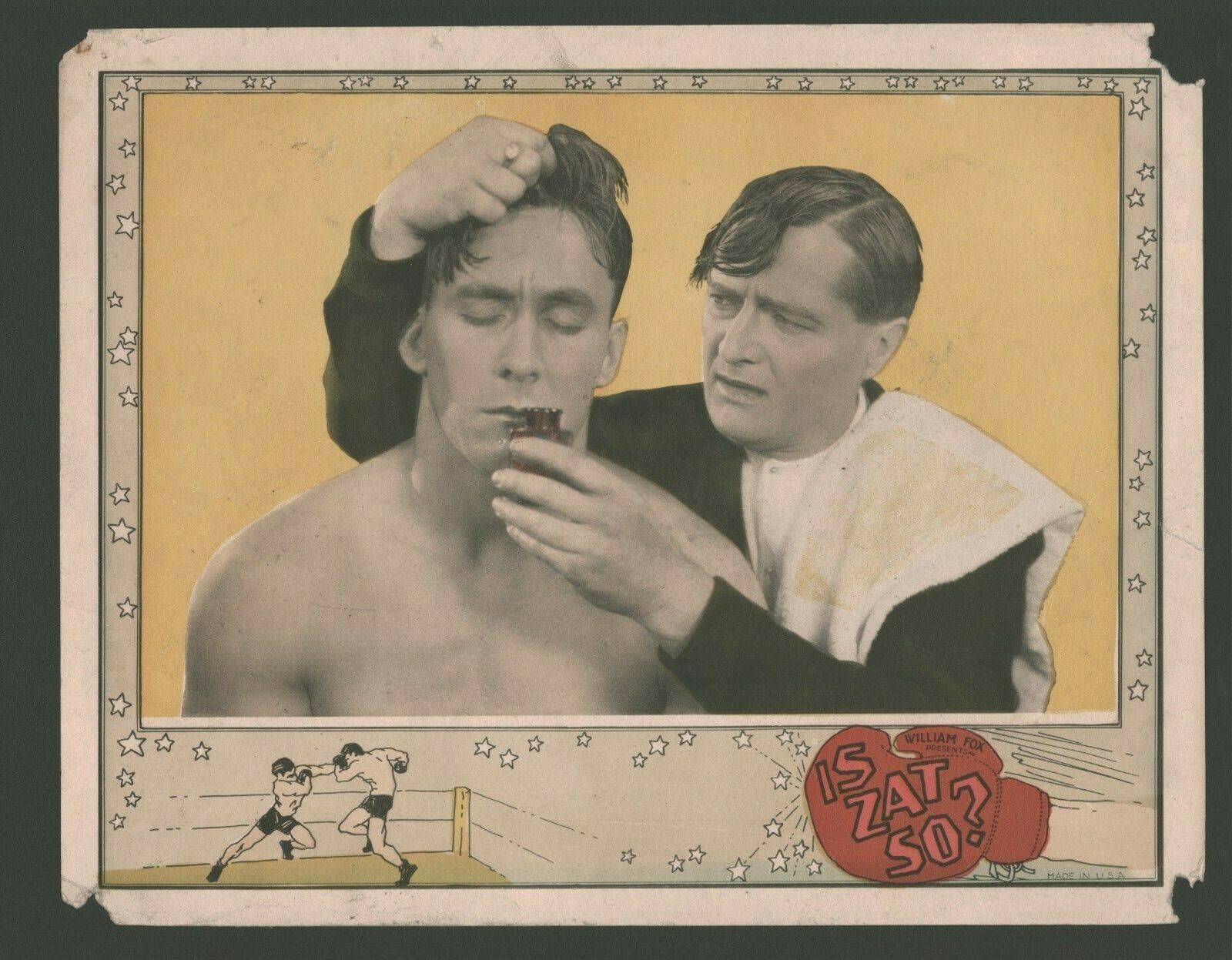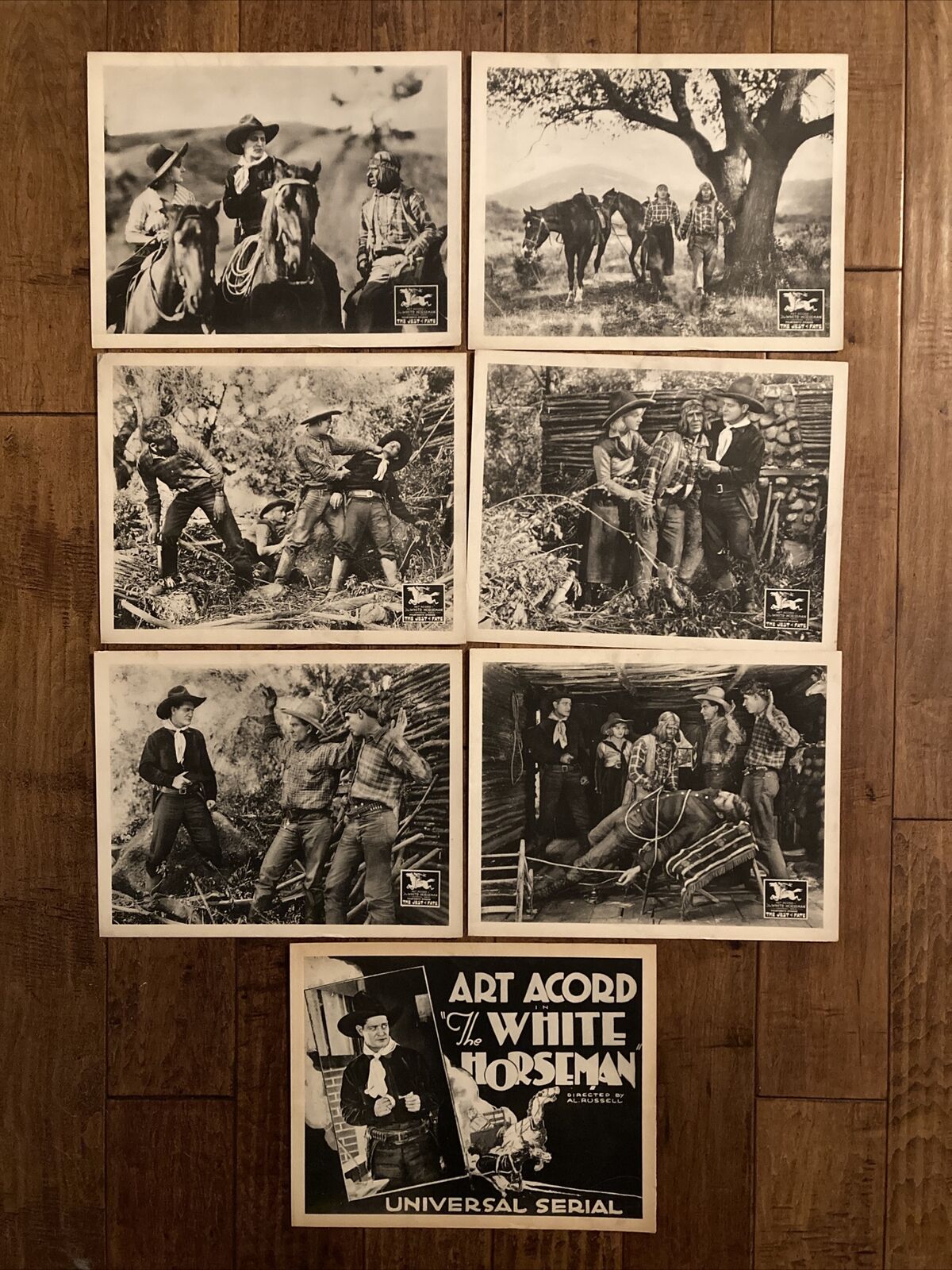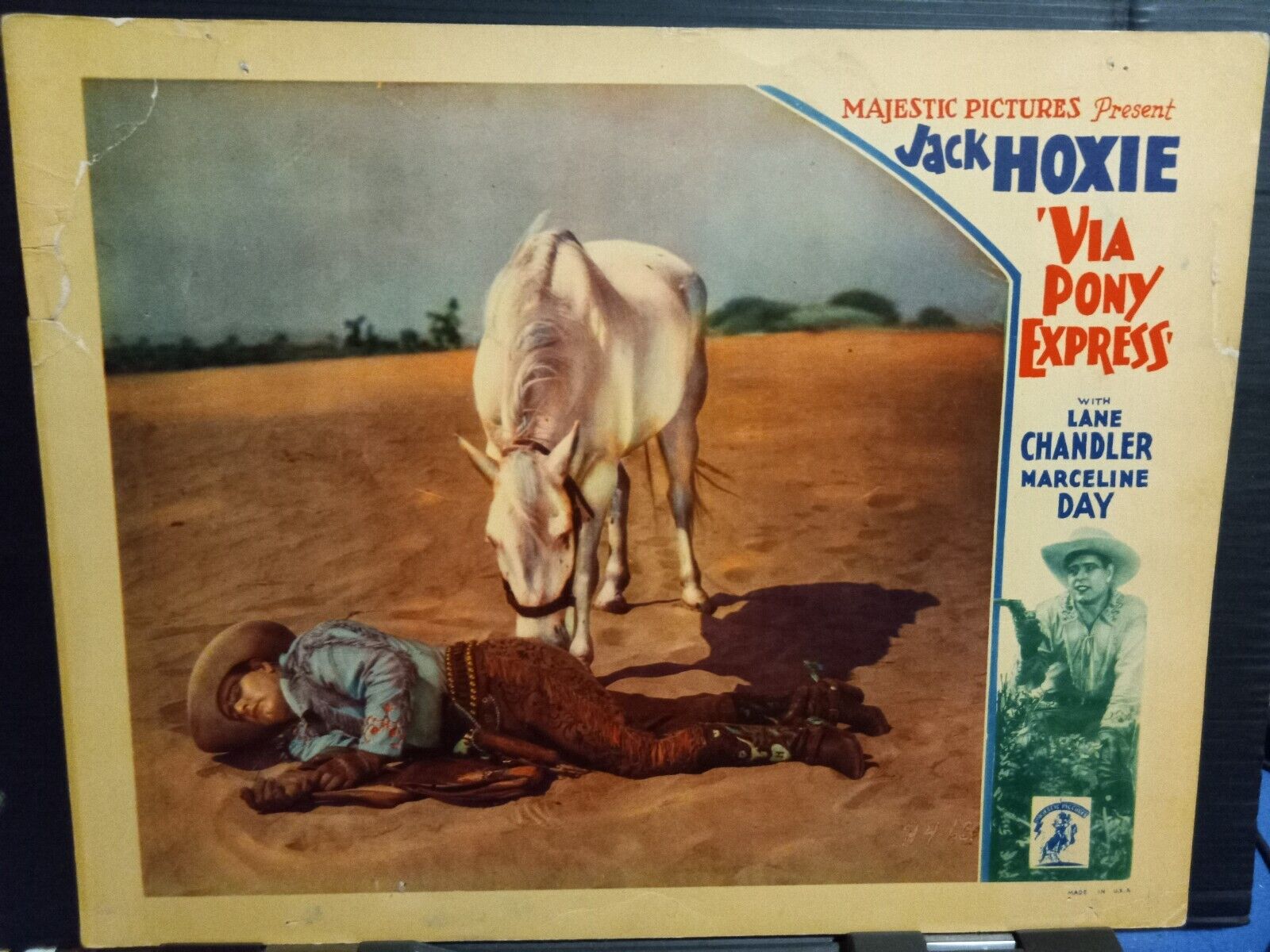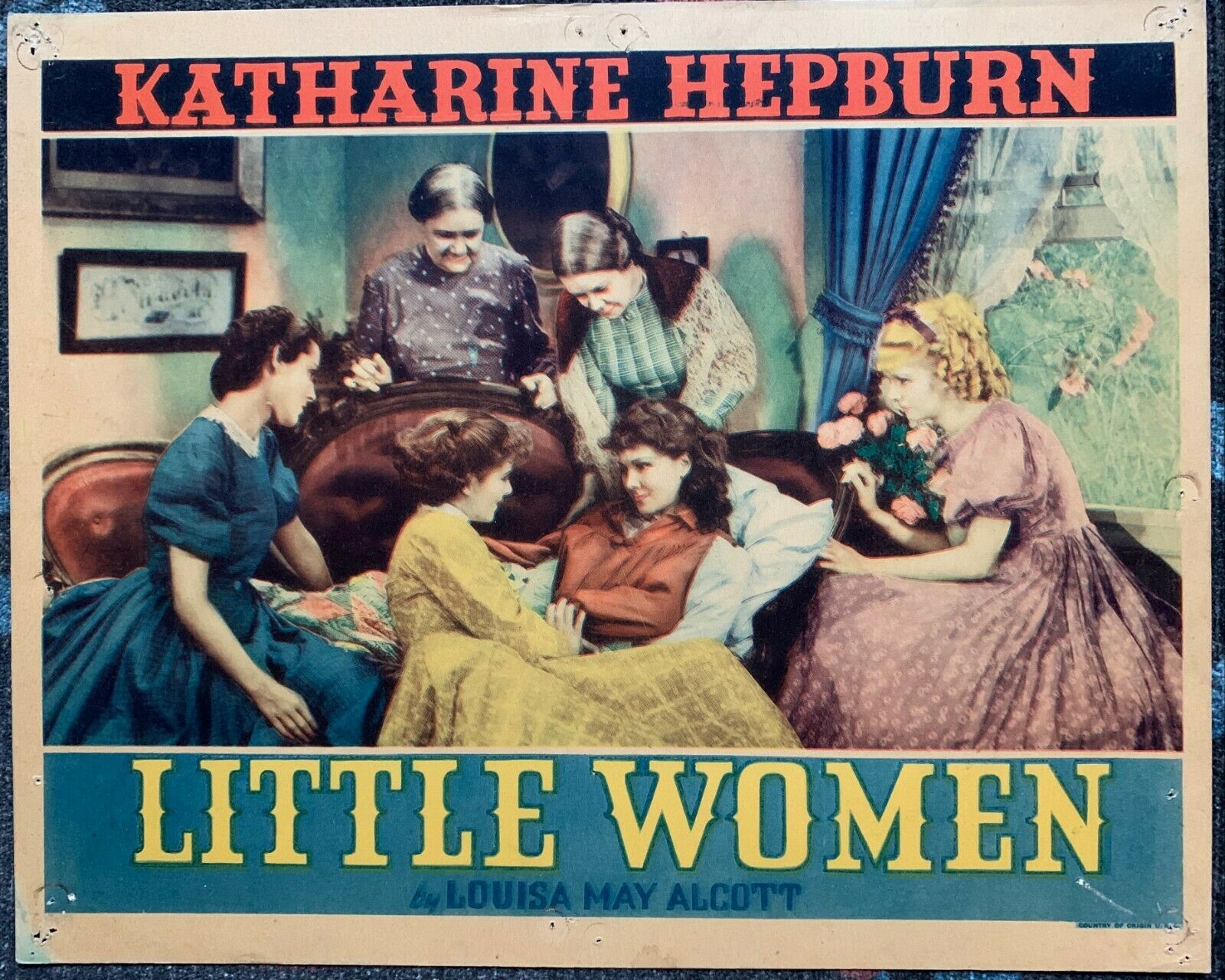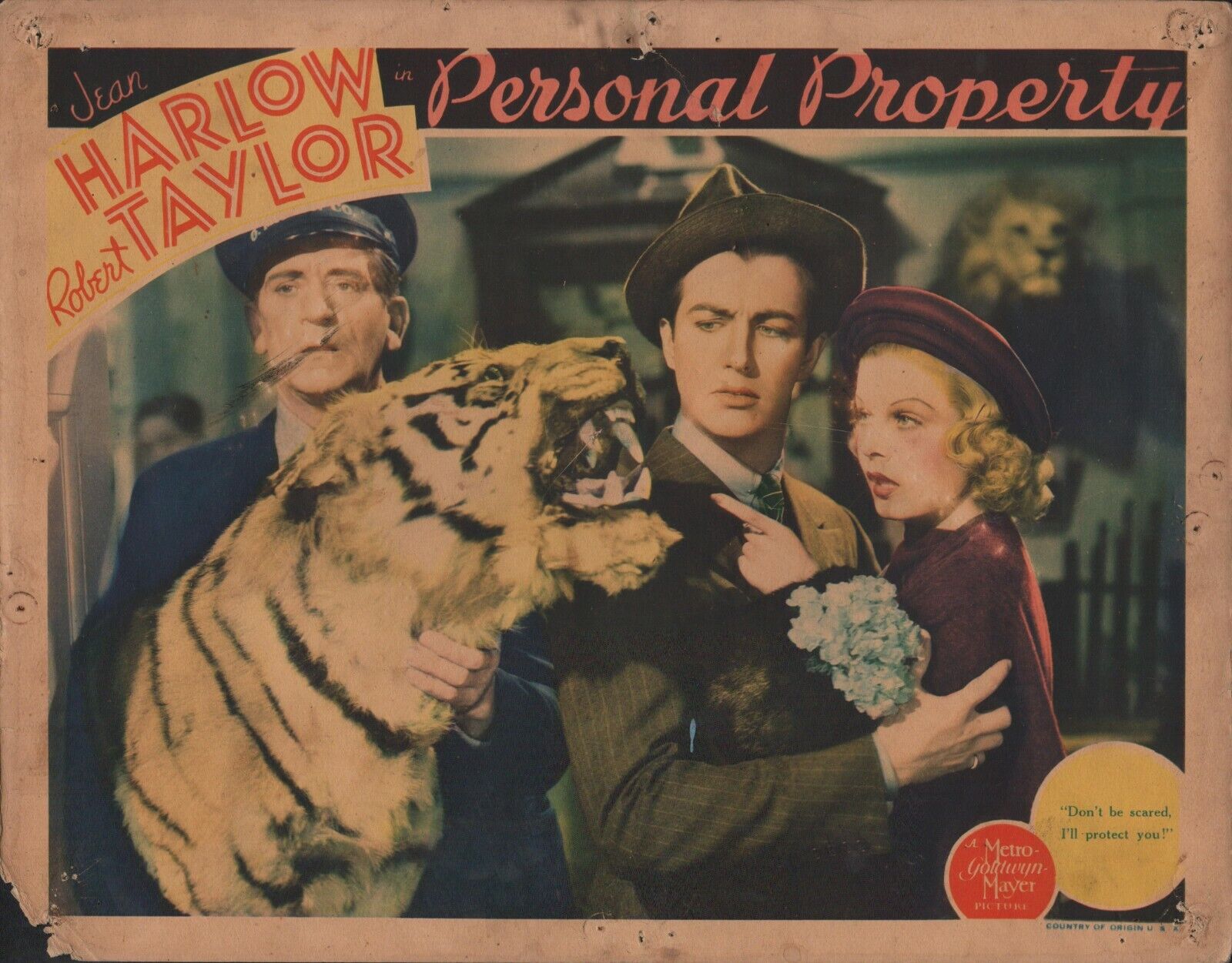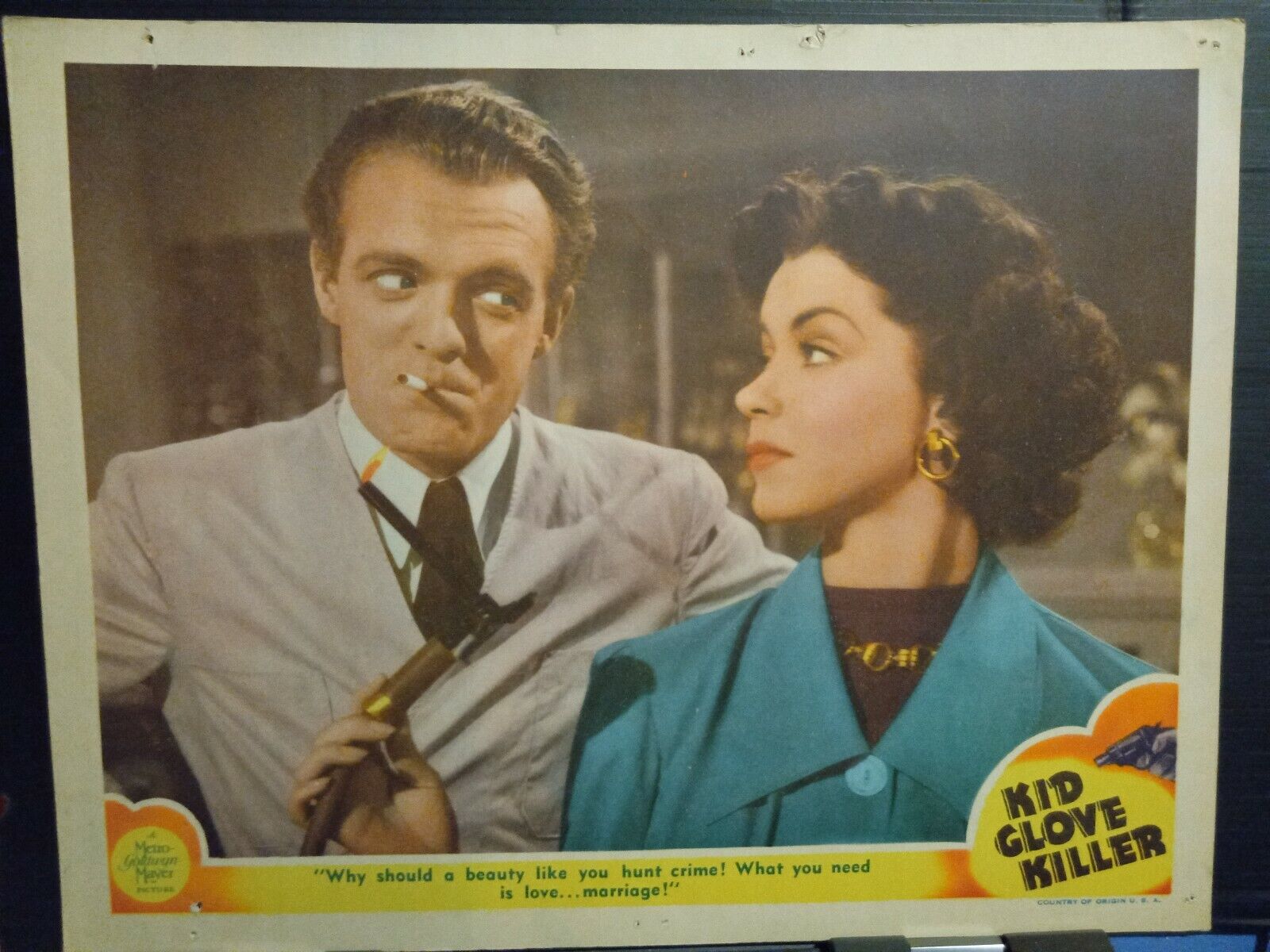-40%
Henry FONDA, John FORD, Lobby Card YOUNG MR. LINCOLN (1939) Vintage & Original
$ 84.46
- Description
- Size Guide
Description
(This looks MUCH better than the picture above. GET SIGNED!)Henry FONDA, John FORD Lobby Card YOUNG MR. LINCOLN (1939) Vintage & Original, Dorris Bowdon, Judith Dickens, Arleen Whelan, Eddie Collins, Francis Ford, Jack Pennick
This 11 x 14 inch Lobby Card would look great framed on display in your home theater, signed or autographed or to add to your portfolio or scrapbook! Some dealers buy my lots (see my other auctions) to break up and sell separately at classic film conventions at much higher prices than my low minimum. A worthy investment for gift giving too!
PLEASE BE PATIENT WHILE ALL PICTURES LOAD
After checking out this item please look at my other unique silent motion picture memorabilia and Hollywood film collectibles! COMBINE SHIPPING COST AND SAVE $
See a gallery of pictures of my other auctions
HERE!
This LOBBY CARD is an original release (vintage, from the original Hollywood studio release) and not a digital copy or reproduction printing.
DESCRIPTION:
John Ford's fine direction distinguishes this highly fictionalized account of the early life of Abraham Lincoln. The film shows Lincoln (Henry Fonda) as he rises from a country boy born in a log cabin to a lawyer in Springfield, Illinois defending two young men unjustly accused of murder. The film, produced by Darryl F. Zanuck, received an Academy Award nomination for "Best Original Screenplay" for its screenwriter Lamar Trotti. Henry Fonda perhaps the most American of actors, is at his best playing Lincoln as the quintessential, compassionate American hero.
”
CONDITION:
This quality vintage and original Lobby Card is in Near EXCELLENT condition (old yes, with the normal patina [hand dirt] and minor bumping to the edges. There are four very tiny pinholes and a little dirt in the border area and a minor surface tear near the top edge), it is has sharp, crisp details and it is not a re-release, not digital or a repro. It came from the studio to the theater during the year of release and then went into storage where the collector I bought them from kept them for over 74 years! I have recently acquired two huge collections from life long movie buffs who collected for decades… I need to offer these choice items for sale on a first come, first service basis to the highest bidder.
SHIPPING:
Domestic shipping would be FIRST CLASS and well packed in plastic, with several layers of cardboard support/protection and delivery tracking. International shipping depends on the location, and the package would weigh close to a pound (14-16 ounces) with even more extra ridge packing.
PAYMENTS:
Please pay PayPal! All of my items are unconditionally guaranteed. E-mail me with any questions you may have. This is Larry41, wishing you great movie memories and good luck…
BACKGROUND:
More hagiography than biography, Young Mr. Lincoln (1939) took such outrageous liberties with historical fact that its value as a portrait of the nation's sixteenth president remains questionable. Nevertheless, the performance of Henry Fonda and the assured, fully engaged direction of John Ford placed Young Mr. Lincoln among both men's best work. Indeed, 1939 came to be regarded as Ford's annus mirabilis, the year in which he began his ascent to legend status, directing not only Young Mr. Lincoln but also Drums Along the Mohawk and Stagecoach. It is ironic that Young Mr. Lincoln came to be so well regarded, since neither Ford nor Fonda initially wanted to do the picture. A pair of plays about Lincoln's younger years had just enjoyed success on Broadway, so a reluctant Ford was pressured by Fox producer Darryl F. Zanuck to tackle what was essentially a studio assignment. On reading the script by Lamar Trotti, however, the zealously patriotic Ford became more enthusiastic about the film's all-American subject matter, even persuading a reluctant Fonda to take the lead role. Intimidated by playing such an august historical figure, Fonda at first rejected the part, but he changed his mind during a meeting in which Ford reportedly told the skittish star that he would be playing not "the Great Emancipator" but "a jack-legged lawyer from Springfield, Illinois -- a gawky kid still wet behind the ears who rides a mule because he can't afford a horse." When Ford clashed with Zanuck over the film's slow pace and grew fearful that the studio would ruin his film in post-production, he destroyed the negatives of every take he disliked and did in-camera editing. The studio disappointed Ford anyway, excising a scene in which Lincoln and a young John Wilkes Booth have a friendly encounter. Like that scene, most of Young Mr. Lincoln is pure Hollywood balderdash, resting on only the slimmest tissue of truth. For instance, the real murder trial depicted in the film was based not on one tried by Lincoln but on a real-life courtroom drama witnessed by Trotti, who had covered it as a reporter. Though it was not in any way an authoritative view of its subject, Young Mr. Lincoln was a masterpiece of cinema, showcasing a writer, director, and star at the top of their games. In a supreme irony, Young Mr. Lincoln was a major inspiration for master Soviet filmmaker Sergei Eisenstein in the creation of his propagandistic classic, Ivan the Terrible (1944).
Henry FONDA One of the cinema's most enduring actors, Henry Fonda enjoyed a highly successful career spanning close to a half century. Most often in association with director John Ford, he starred in many of the finest films of Hollywood's golden era. Born May 16, 1905, in Grand Island, NE, Fonda majored in journalism in college, and worked as an office boy before pursuing an interest in acting. He began his amateur career with the Omaha Community Playhouse, often performing with the mother of Marlon Brando. Upon becoming a professional performer in 1928, Fonda traveled east, tenuring with the Provincetown Players before signing on with the University Players Guild, a New England-based ensemble including up-and-comers like James Stewart, Margaret Sullavan, and Joshua Logan. Fonda's first Broadway appearance followed with 1929's The Game of Life and Death. He also worked in stock, and even served as a set designer. In 1931, Fonda and Sullavan were married, and the following year he appeared in I Loved You Wednesday. The couple divorced in 1933, and Fonda's big break soon followed in New Faces of '34. A leading role in The Farmer Takes a Wife was next, and when 20th Century Fox bought the film rights, they recruited him to reprise his performance opposite Janet Gaynor, resulting in his 1935 screen debut. Fonda and Gaynor were slated to reunite in the follow-up, Way Down East, but when she fell ill Rochelle Hudson stepped in. In 1936 he starred in The Trail of the Lonesome Pine (the first outdoor Technicolor production), the performance which forever defined his onscreen persona: Intense, insistent, and unflappable, he was also extraordinarily adaptable, and so virtually impossible to miscast. He next co-starred with Sullavan in The Moon's Our Home, followed by Wings of the Morning (another Technicolor milestone, this one the first British feature of its kind). For the great Fritz Lang, Fonda starred in 1937's You Only Live Once, and the following year co-starred with Bette Davis in William Wyler's much-celebrated Jezebel. His next critical success came as the titular Young Mr. Lincoln, a 1939 biopic directed by John Ford. The film was not a commercial sensation, but soon after Fonda and Ford reunited for Drums Along the Mohawk, a tremendous success. Ford then tapped him to star as Tom Joad in the 1940 adaptation of John Steinbeck's The Grapes of Wrath, a casting decision which even Steinbeck himself wholeheartedly supported. However, 20th Century Fox's Darryl Zanuck wanted Tyrone Power for the role, and only agreed to assign Fonda if the actor signed a long-term contract. Fonda signed, and Zanuck vowed to make him the studio's top star -- it didn't happen, however, and despite the success of The Grapes of Wrath (for which he scored his first Best Actor Academy Award nomination), his tenure at Fox was largely unhappy and unproductive. The best of Fonda's follow-up vehicles was the 1941 Preston Sturges comedy The Lady Eve, made at Paramount on loan from Fox; his co-star, Barbara Stanwyck, also appeared with him in You Belong to Me. After a number of disappointing projects, Fox finally assigned him to a classic, William Wellman's 1943 Western The Ox-Bow Incident. Studio executives reportedly hated the film, however, until it won a number of awards. After starring in The Immortal Sergeant, Fonda joined the navy to battle in World War II. Upon his return, he still owed Fox three films, beginning with Ford's great 1946 Western My Darling Clementine. At RKO he starred in 1947's The Long Night, followed by Fox's Daisy Kenyon. Again at RKO, he headlined Ford's The Fugitive, finally fulfilling his studio obligations with Ford's Fort Apache, his first unsympathetic character. Fonda refused to sign a new contract and effectively left film work for the next seven years, returning to Broadway for lengthy runs in Mister Roberts, Point of No Return, and The Caine Mutiny Court Martial. Outside of cameo roles in a handful of pictures, Fonda did not fully return to films until he agreed to reprise his performance in the 1955 screen adaptation of Mister Roberts, one of the year's biggest hits. Clearly, he had been greatly missed during his stage exile, and offers flooded in. First there was 1956's War and Peace, followed by Alfred Hitchcock's The Wrong Man. In 1957, Fonda produced as well as starred in the Sidney Lumet classic Twelve Angry Men, but despite a flurry of critical acclaim the film was a financial disaster. In 1958, after reteaming with Lumet on Stage Struck, Fonda returned to Broadway to star in Two for the Seesaw, and over the years to come he alternated between projects on the screen (The Man Who Understood Women, Advise and Consent, The Longest Day) with work on-stage (Silent Night, Lonely Night, Critic's Choice, Gift of Time). From 1959 to 1961, he also starred in a well-received television series, The Deputy. By the mid-'60s, Fonda's frequent absences from the cinema had severely hampered his ability to carry a film. Of his many pictures from the period, only 1965's The Battle of the Bulge performed respectably at the box office. After 1967's Welcome to Hard Times also met with audience resistance, Fonda returned to television to star in the Western Stranger on the Run. After appearing in the 1968 Don Siegel thriller Madigan, he next starred opposite Lucille Ball in Yours, Mine and Ours, a well-received comedy. Fonda next filmed Sergio Leone's Once Upon a Time in the West; while regarded as a classic, the actor so loathed the experience that he refused to ever discuss the project again. With his old friend, James Stewart, he starred in The Cheyenne Social Club before agreeing to a second TV series, the police drama Smith, in 1971. That same year, he was cast to appear as Paul Newman's father in Sometimes a Great Notion. After a pair of TV movies, 1973's The Red Pony and The Alpha Stone, Fonda began a series of European productions which included the disastrous Ash Wednesday and Il Mio Nome è Nessuno. He did not fare much better upon returning to Hollywood; after rejecting Network (the role which won Peter Finch an Oscar), Fonda instead appeared in the Sensurround war epic Midway, followed by The Great Smokey Roadblock. More TV projects followed, including the miniseries Roots -- The Next Generation. Between 1978 and 1979, he also appeared in three consecutive disaster movies: The Swarm, City on Fire, and Meteor. Better received was Billy Wilder's 1978 film Fedora. A year later, he also co-starred with his son, Peter Fonda, in Wanda Nevada. His final project was the 1981 drama On Golden Pond, a film co-starring and initiated by his daughter, Jane Fonda; as an aging professor in the twilight of his years, he finally won the Best Actor Oscar so long due him. Sadly, Fonda was hospitalized at the time of the Oscar ceremony, and died just months later on August 12, 1982.
Maine-born John Ford (born Sean Aloysius O'Fearna) originally went to Hollywood in the shadow of his older brother, Francis, an actor/writer/director who had worked on Broadway. Originally a laborer, propman's assistant, and occasional stuntman for his brother, he rose to became an assistant director and supporting actor before turning to directing in 1917. Ford became best known for his Westerns, of which he made dozens through the 1920s, but he didn't achieve status as a major director until the mid-'30s, when his films for RKO (The Lost Patrol [1934], The Informer [1935]), 20th Century Fox (Young Mr. Lincoln [1939], The Grapes of Wrath [1940]), and Walter Wanger (Stagecoach [1939]), won over the public, the critics, and earned various Oscars and Academy nominations. His 1940s films included one military-produced documentary co-directed by Ford and cinematographer Gregg Toland, December 7th (1943), which creaks badly today (especially compared with Frank Capra's Why We Fight series); a major war film (They Were Expendable [1945]); the historically-based drama My Darling Clementine (1946); and the "cavalry trilogy" of Fort Apache (1948), She Wore a Yellow Ribbon (1949), and Rio Grande (1950), each of which starred John Wayne. My Darling Clementine and the cavalry trilogy contain some of the most powerful images of the American West ever shot, and are considered definitive examples of the Western. Ford also had a weakness for Irish and Gaelic subject matter, in which a great degree of sentimentality was evident, most notably How Green Was My Valley (1941) and The Quiet Man (1952), which was his most personal film, and one of his most popular. It also earned more Oscars and nominations than any other movie ever produced at Republic Pictures. Poor health dogged Ford's career during the 1950s, but he still managed to create The Sun Shines Bright (1953) -- one of his favorite films, dealing with politics and race relations in the 19th century South -- Mogambo (1953), and The Searchers (1956), which is considered one of the most powerful Western dramas ever made. The Horse Soldiers (1959) showed some of Ford's flair, but was marred by production problems, and Ford later directed the John Wayne/Harry Morgan section of How the West Was Won (1963). His concern with social justice, which manifested itself in The Sun Shines Bright also became more evident during the early '60s, in films such as Sergeant Rutledge (1960), Donovan's Reef (1963), and Cheyenne Autumn (1964), all of which sought to address problems of racial prejudice. Ford was the recipient of the first Life Achievement Award bestowed by the American Film Institute, and was the subject of Peter Bogdanovich's documentary, Directed by John Ford (1971). He died in 1973.
After playing minor roles opposite Henry Fonda in both Young Mr. Lincoln (1939) and Drums Along the Mohawk, blonde, hazel-eyed Dorris Bowdon was awarded the choice role of Rosasharn, again opposite Fonda, in John Ford's evocative The Grapes of Wrath (1940). It was by no means a major role but she earned fine reviews and should have gone on to bigger and better things. Instead, she became the third wife of screenwriter Nunnally Johnson and retired. Bowdon was the grandmother of late-'90s child star Jack Johnson.
A former manicurist, Arleen Whelan had been playing movie bits for nearly a year when she was signed to a 20th Century-Fox contract in 1938. Largely confined to programmers and "B"-pictures, Whelan managed to cop the plum role of pioneer wife Hannah Clay in John Ford's Young Mr. Lincoln (1939). Her career peaked in the mid-1940s; by the 1950s, she had to make do with Republic westerns, though Young Mr. Lincoln director John Ford did secure her a good part in The Sun Shines Bright (1953). Married three times, Arleen Whelan's first husband was Egyptian leading man Alex D'Arcy.
Eddie Collins (January 30,1883 - September 2,1940) was a Vaudeville stage performer who became the first actor employed by the Walt Disney Studio as live-action reference for animation when he modeled and provided vocal talent for the character of Dopey in Snow White and the Seven Dwarfs. When he died, he was later replaced by Mel Blanc who was considered for his role for Dopey.
Mainly remembered for offering younger brother John Ford his first opportunities in the movie business, Francis Ford (born Feeney) was a touring company actor before entering films with Thomas Edison in 1907. In the early 1910s, he served a tumultuous apprenticeship as a director/star for producer Thomas Ince -- who in typical Ince fashion presented many of Ford's accomplishments as his own -- before moving over to Carl Laemmle's Universal in 1913. A true auteur, Ford would direct, write, and star in his own Westerns and serials, often opposite Grace Cunard, the studio's top action heroine. Contrary to popular belief they never married, but their onscreen partnership resulted in such popular action serials as Lucille Love -- Girl of Mystery (1914), The Broken Coin (1915), and The Adventures of Peg o' the Ring (1916). Both Ford's and Cunard's careers declined in the 1920s, with Ford directing mostly poverty row productions. He kept working in films as a supporting actor through the early '50s, mainly due to the influence of John, who often made Francis Ford and Victor McLaglen supply the corny Irish humor for which he exhibited a lifelong fondness. Francis Ford's son, Philip Ford, also became a director of Westerns, and also like his father, mainly of the poverty row variety.
WWI-veteran Jack Pennick was working as a horse wrangler when, in 1926, he was hired as a technical advisor for the big-budget war drama What Price Glory? Turning to acting in 1927, Pennick made his screen bow in Bronco Twister. His hulking frame, craggy face, and snaggle-toothed bridgework made him instantly recognizable to film buffs for the next 35 years. Beginning with 1928's Four Sons and ending with 1962's How the West Was Won, Pennick was prominently featured in nearly three dozen John Ford films. He also served as Ford's assistant director on How Green Was My Valley (1941) and Fort Apache (1947), and as technical advisor on The Alamo (1960), directed by another longtime professional associate and boon companion, John Wayne. Though pushing 50, Jack Pennick interrupted his film career to serve in WWII, earning a Silver Star after being wounded in combat.
